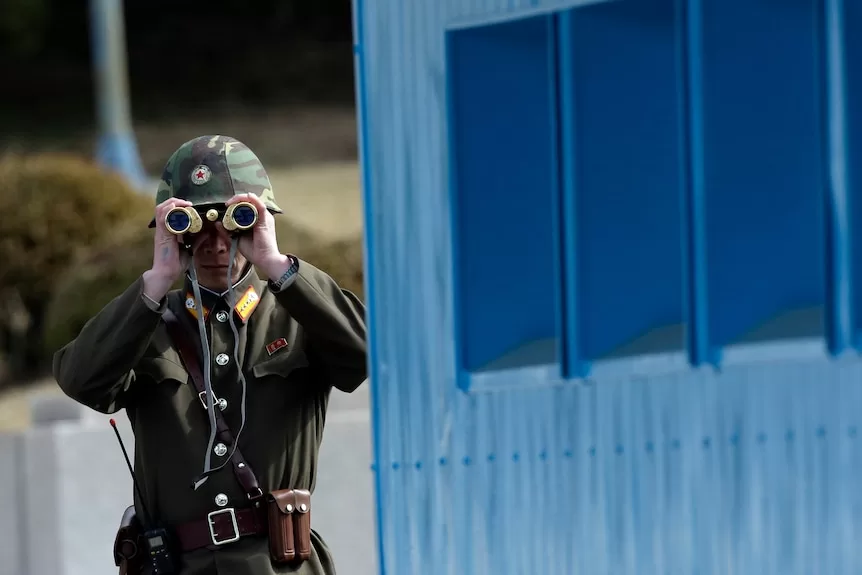North Korean authorities publicly sentenced two teenagers to 12 years of hard labour for watching K-pop, video footage shows.
Key points:
- The footage shows two 16-year-olds in Pyongyang convicted of watching South Korean movies and music videos
- North Korea has a history of imposing tough sentences on anyone caught enjoying South Korean entertainment
- A North Korean defector believes millenials and Gen Z could be creating troubles for leader Kim Jong Un
The footage, released by an organisation which works with North Korean defectors, shows the two 16-year-olds in Pyongyang convicted of watching South Korean movies and music videos.
Reuters was unable to independently verify the South and North Development (SAND) Institute footage, which was first reported by the BBC.
The video, made by North Korean authorities, shows a large public trial in which the two students in grey scrubs are handcuffed while being watched by about 1,000 students in an amphitheatre.
The students were sentenced, according to the video, after being convicted of watching and spreading South Korean movies, music and music videos over three months.
“They were seduced by foreign culture… and ended up ruining their lives,” the narrator states, as the video cuts away.
North Korea has a history of imposing tough sentences on anyone caught enjoying South Korean entertainment or copying the way South Koreans speak.
The nation’s war on outside influences was strengthened when the “anti-reactionary thought” law was imposed in 2020.
“Judging from the heavy punishment, it seems that this is to be shown to people across North Korea to warn them,” SAND president Choi Kyong-hui, who defected from North Korea in 2001, said.
“If so, it appears this lifestyle of South Korean culture is prevalent in North Korean society.”
Ms Kyong-hui said she believes the video was filmed in 2022.
All the students are wearing face masks, suggesting the footage was shot during the coronavirus pandemic.
“What is troublesome for (North Korean leader) Kim Jong Un is that Millennials and Gen Z young people have changed their way of thinking,” she said.
“I think he’s working on turning it back to the North Korean way.”
Reuters
